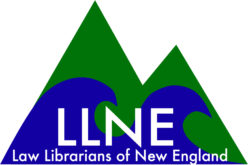Thanks to a generous Continuing Education Scholarship from LLNE I attended my first 2017 Digital Library Federation Forum (DLF Forum) and National Digital Stewardship Alliance’s Digital Preservation Conferences this October.
The Digital Library Foundation is “a robust and ever more diverse and inclusive community of practitioners who advance research, learning, social justice, and the public good through the creative design and wise application of digital library technologies.” Their main event every year is the Digital Library Forum.
The forum includes a wide variety of practitioners who work throughout academia. This included, and I had the opportunity to meet, a number of librarians, IT professionals, faculty, and researchers all interested in the “wise application of digital library technologies.”
Before getting to the actual content of the sessions I think it’s worth noting the unique structure of the conference. Each time block had multiple sessions. Each session had an overarching topic associated with it, and three or more curated presentations related to that topic. In other words the sessions might not be a coordinated and cohesive presentation but rather multiple curated presentations on a topic.
In addition to more traditional panels, there were also workshops which were dedicated to specific topics that often lasted more than one session block as well as working breakfasts and lunches organized by particular DLF groups that served to educate people about the work of those groups, plan for the coming year, and generally discuss a particular topic.
I should also note, one of the great things about DLF was shared community notetaking and material posted to the Open Science Framework . This will make it very easy to review my notes and share relevant material with others. Audience members at every session were encouraged to take notes in the community documents. This also made it much easier to pay attention to the presentation without feeling that I had to take copious notes.
Content-wise the first thing that struck me was how dedicated this professional conference was to the cause of social justice. However, this was often not simply some high-minded ideal discussed abstractly but how this might, would, could or should work in practice was often addressed, even if we didn’t arrive at a definitive answer.
For example, the first session I attended discussed ‘labor’ in digital libraries. I was impressed by how this session, particularly the first presentation, tackled issues of gender and culture head on, but also in such a practical way including discussions about ways to make employee labor on digital scholarship initiatives more visible. Similar themes would appear often throughout the conference – the following links provide two of a number of examples: https://osf.io/x972e/, m5d.
The conference, however, did also include it’s share of practical and techie sessions – many of which were of great relevance. The outreach session included a number of practical approaches one could take. One group discussed their use of Zooniverse to help use a volunteer community to classify old real estate documents. Other libraries are using it to transcribe historical documents like banking records and U.S. Civil War messages.
Finally, there were a number of hot topics which seemed to generate a lot of interest. These hot topic areas are discussed in DLF Groups that appear to be very active and involved in a number of important projects. I attended a number of sessions with the DLF Pedagogy Group and Assessment Group. Just sitting in on their sessions discussing what they’ve been working on proved incredibly valuable. The Assessment group has also created a Digitization Cost Calculator, which is a great resource for digitization projects. We also discussed analytics, and even how to assess the reach of digitized collections and repository items.
The NDSA Digital Preservation conference was a separate conference that began after the DLF Forum. The highlights of the Digital Preservation conference, for me, was the chance to catch up with Legal Information Preservation Alliance (LIPA) Executive Director Margie Maes and attend a great session that included Sharon Bradley from the Library at the University of Georgia School of Law. She was discussing legal issues around digital preservation.
I would highly recommend DLF to other librarians. While law librarians were few and far between the content was still relevant. Discussions of digital humanities, data, digital libraries, institutional repositories, and similar issues cut across all different types of libraries. Law librarians would do well to explore DLF and similar conferences to get different perspectives on how we might approach some of our work. I certainly valued my time there and appreciate LLNE for affording me the opportunity to make it happen.
